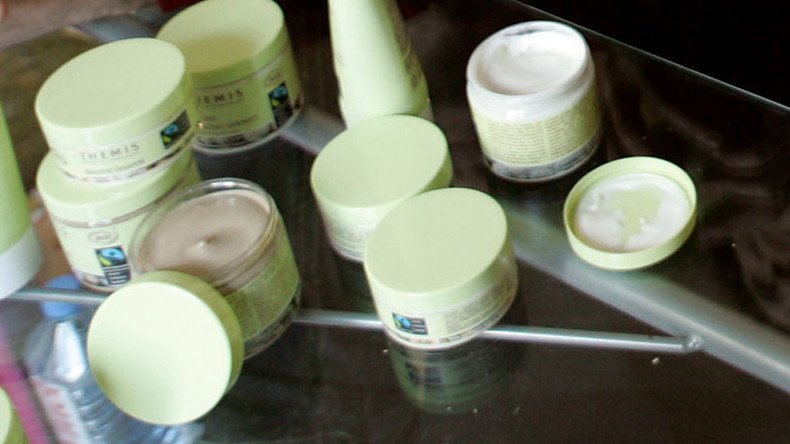Britain considers banning plastic microbeads unless cosmetic companies 'clean up their act'

MPs have called for cosmetic companies to “clean up their act” or face a full ban of using dangerous microbeads in their products after a damning environmental report revealed the damage done to marine life because of the plastic particles.
Research by the Environmental Audit Committee on “Marine Microplastic Pollution” warned that the increasing amount of plastic in the seas is leading to the damage of marine life, which could lead to the potential harm of human health in the process.
We've had two hearings on the environmental impact of #microplastics. Catch up here: https://t.co/iVYacjHwsehttps://t.co/6OKjg5GzmZ
— Env Audit Committee (@CommonsEAC) May 27, 2016
Between 16 and 86 tons of plastic microbeads are believed to be found in cosmetic products such as “exfoliating” scrubs and toothpastes, which are subsequently washed into UK waters after being used.
READ MORE: 88% of world's oceans covered by plastic junk – study
When the microplastics are ingested by marine life, they pose a threat to the environment and wellbeing of humans, the report found.
The plastic particles have been found in zooplankton, mussels, oysters, seals and whales along with several other species, with 36.5 percent of fish being affected in the English Channel, according to one study.
Bad news - we need a UK ban now. US already has one, backed even by Republicans! #microbeadshttps://t.co/ZCQAflWwOg
— Natalie Bennett (@natalieben) June 3, 2016
“This paper raises important questions about the damage microplastics could be doing to our marine environment,” MP Mary Creagh, the Chair of the Environmental Audit Committee said, according to the Independent.
Creagh said the best solution to reduce microplastic pollution is “to prevent plastic entering our waters in the first place.”
“Cosmetic companies need to clean up their act and phase out the plastic microbeads causing marine pollution,” she added. “If they refuse to act, the Environmental Audit Committee will consider calling for a full ban on microbeads.”
The particles are often marketed by cosmetic companies as “natural body scrubs” and “exfoliants,” despite microbeads being fragments of broken down plastics and other synthetic fibers.
Great @CIWM graphic on plastic marine litter. @CommonsEAC investigating this https://t.co/jdtT7VLhH6#microbeadspic.twitter.com/My5vE9SDo7
— Mary Creagh (@MaryCreaghMP) May 26, 2016
The wider implication of using the tiny balls of plastic remains uncertain, but many studies have shown that the ingestion of the product is having a profound effect on many species.
Researchers from the committee claimed that even if the flow of plastic litter into the sea was stopped, microplastic would most likely continue to increase.
Twenty-five UK brands have pledged to ensure their products are free from microbeads including supermarket chains Tesco and Sainsbury’s, while the item is banned in products from the US.
A parliamentary hearing next week will consider whether the UK should follow the US to outlaw microbeads.
Can someone explain why the government can't just ban microbeads now? 1 in 3 fish caught in the English Channel have them in their gut!
— Kirstie Mary Allsopp (@KirstieMAllsopp) June 5, 2016
Up to 50 trillion microplastic particles can be found in the world’s oceans, but only a fraction of these come from cosmetics, according to Erik van Sebille from Imperial College London.
Fibers from synthetic clothes and large pieces of plastic which disintegrate into smaller fragments have also been blamed for the pollution of the seas.












